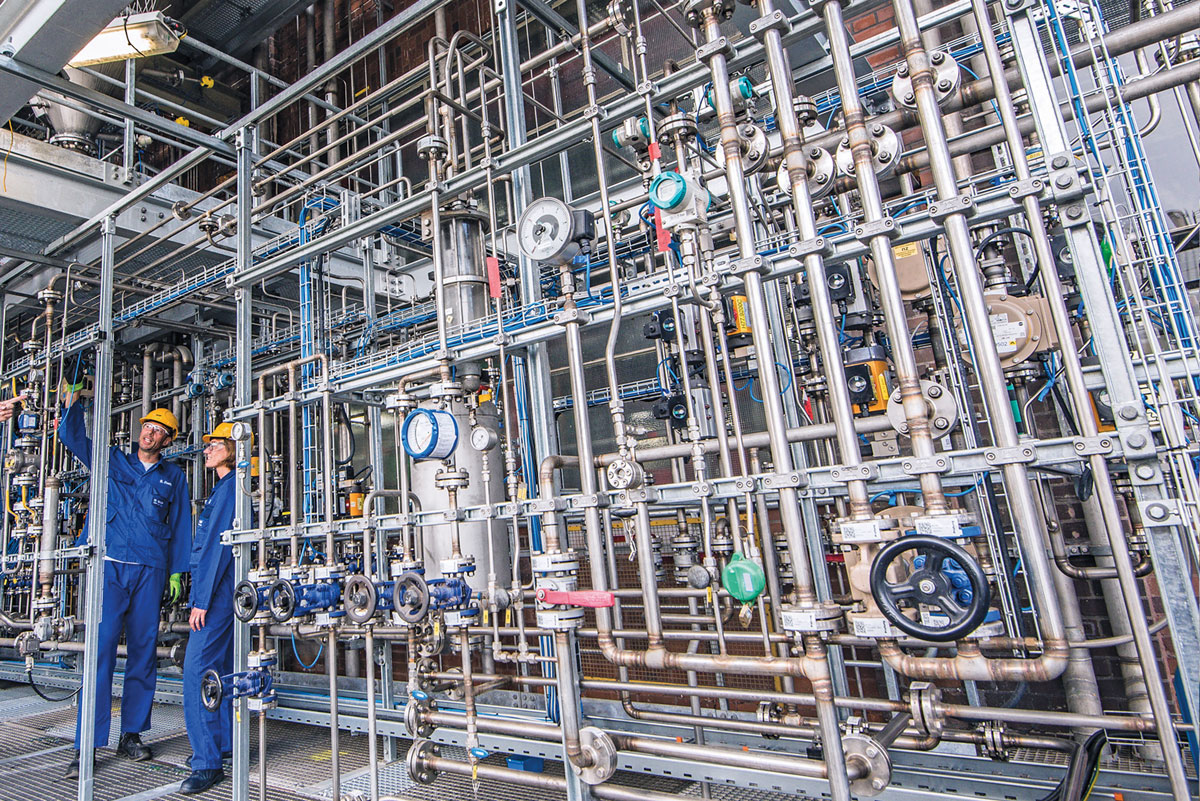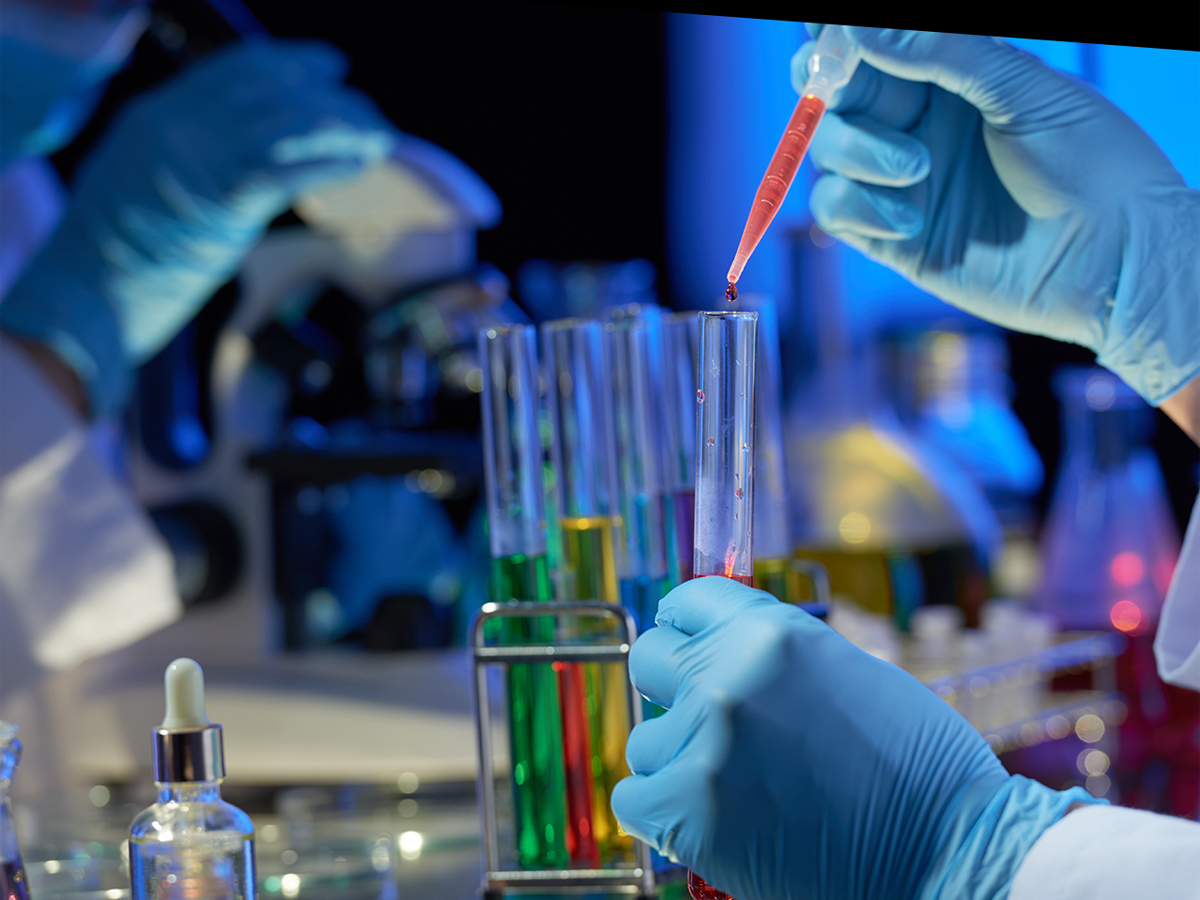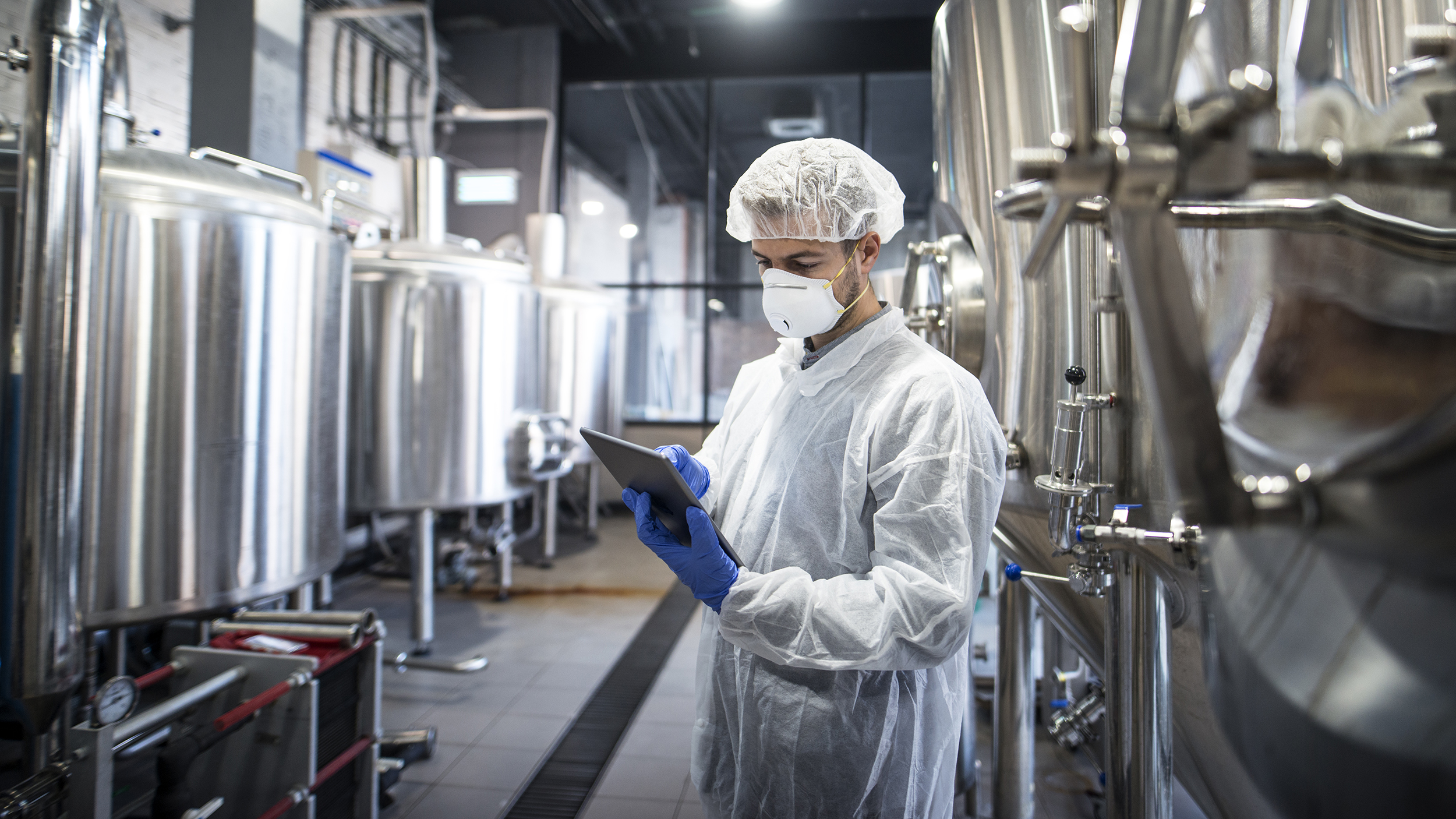Top 10 Best Diversified Chemicals Companies In USA 2023
Top 10 Best Diversified Chemicals Companies In USA 2023

INTRODUCTION
The US chemical industry is one of the most diversified in the world. It comprises a variety of companies, from small to large, from niche to global, which produce a wide range of products used in everyday life. In 2023, many chemical companies in the US offer a variety of products and services. These include speciality chemicals, pharmaceuticals, polymers, plastics, coatings, lubricants, and more.

Major chemical companies based in the US include BASF, DuPont, Dow Chemical, Eastman Chemical, Evonik Industries, Honeywell, Huntsman Corporation, Praxair, and Solvay. These companies offer products and services to customers in the industrial, consumer, and healthcare sectors.
BASF is a leading producer of chemicals and materials for various industries, while Praxair is a supplier of gases, chemicals, and process equipment. Dow Chemical is a major supplier of polymers, plastics, and other speciality chemicals, while Eastman Chemical produces speciality polymers and chemicals for various applications.
Evonik Industries provides advanced materials for various industries, such as automotive, electronics, and healthcare. Honeywell offers industrial and commercial products, ranging from building materials to lubricants, while Huntsman Corporation specializes in performance materials and chemicals. Finally, Solvay produces a range of products, including high-performance polymers and speciality chemicals.
These companies have significant research and development capabilities, enabling them to offer innovative products and services to their customers. They also have firm environmental commitments and are focused on sustainability initiatives. Many of these companies are reducing their carbon footprint and transitioning to more sustainable operations.
IMPORTANCE
The importance of diversified chemical companies in the USA in 2023 is significant. These companies are a vital part of the country’s industrial landscape, producing a wide range of essential products for everyday life.
These firms are also responsible for creating new jobs and economic growth, helping to keep the US economy strong. In addition, they are often among the first to develop innovative products and processes which can benefit society.

Diversified chemicals companies produce a variety of chemicals used in several industries, such as plastics, pharmaceuticals, and materials manufacturing. They also create safer, greener products for consumers and businesses, which helps reduce environmental impact.
This type of business has become increasingly important as countries worldwide have begun to recognize the adverse side effects of specific chemical production processes.
In the USA, diversified chemical companies are being pushed to think more creatively about their product lines and production processes. The government is putting pressure on these companies to develop innovative solutions to reduce emissions and waste. Companies that embrace this challenge can benefit from improved efficiency, cost savings, and fewer risks.
Overall, diversified chemical companies remain an essential part of the US economy. They continue to bring jobs, economic growth, and innovation to the country while providing some of the most sustainable products and processes available today. Their importance in 2023 will only grow as the pressure to reduce emissions and waste increases.
Here are the top 10 best-diversified chemicals companies in USA in 2023
Dow Chemical – Dow Chemical Company is one of the world’s leading speciality chemicals, advanced materials, and plastics providers. Since its foundation in 1897 by Herbert Henry Dow, the company has grown to become a global leader in science and technology, with operations in more than 80 countries worldwide. Dow provides products to industries ranging from automotive, food and beverage, healthcare, packaging, personal care, and electronics.
Dow focuses on developing innovative solutions that help customers improve their product performance while reducing environmental impact. The company prides itself on being a leader in sustainability and corporate responsibility, with initiatives such as its 2025 Sustainability Goals, which focus on eliminating waste, advancing circular economy practices, and investing in innovation for a better tomorrow.
Dow also invests heavily in research and development, mainly on catalysts, energy storage and conversion, coatings and construction materials, crop protection, and packaging. As part of its commitment to corporate social responsibility, the company actively supports several worthy causes, including sustainable development, education, health, arts and culture, and environmental protection.
In addition to its commitment to innovation, Dow is committed to responsible resource stewardship and being a reliable source of supply for its customers. To further this goal, the company has established a network of specialty chemical production sites around the world, with stringent standards and operational excellence at the forefront of these operations.
Overall, Dow is an industry leader in the production of specialty chemicals, advanced materials, and plastics, and is dedicated to creating innovative solutions that make the world a better place.
BASF – BASF is an international chemical company headquartered in Ludwigshafen, Germany. Founded in 1865 as Badische Anilin und Soda-Fabrik, it is the world’s largest chemical producer by sales. With operations in over 80 countries and products sold in more than 190 countries, BASF provides solutions to meet customer needs in the fields of chemistry, plastics, performance materials, and coatings.

BASF’s portfolio includes oil and gas production and exploration, fertilizers, pesticides, biochemicals, and specialty chemicals used in many industries. BASF also produces a wide range of consumer and industrial products, including dyes, paints, automotive components, detergents, insulation, plastics, lubricants, adhesives, and polymers.
BASF has invested heavily in research and development, with a particular focus on green chemistry and sustainable development. The company’s core mission is to provide innovative solutions to customers’ needs while protecting the environment. They strive to create value for society as a whole, while fiercely protecting their intellectual property.
BASF is committed to ethical behavior and transparency in all of its business dealings, and they strive to build strong relationships with their stakeholders.
Dupont – Dupont is a leading global science and technology company. Founded in 1802, it is one of the world’s oldest operating companies. The company has more than 90,000 employees and reported revenue of $37 billion in 2020.
Dupont is a diversified industrial giant with businesses in agriculture, nutrition and health; electronics and communication; performance materials and coatings; construction and energy; and safety and protection. The company’s products include paint, packaging, plastics, medical products, electronics, fabrics, and fibers.
Dupont is dedicated to harnessing science to solve problems and create economic and social value for its customers, shareholders, and society. Its commitment to sustainability is reflected in its activities such as using renewable energy, conserving resources, protecting the environment, investing in education, and collaborating with stakeholders.
Dupont is a leader in innovation, developing new solutions to address global challenges such as climate change, clean water, food security, and sustainable development. It is also committed to providing quality products and services to its customers.
ExxonMobil – ExxonMobil is one of the largest and most powerful energy companies in the world. Founded in 1870 as the Standard Oil Company, ExxonMobil has grown to become a Fortune 500 company with over $290 billion in revenue in 2020. The company operates across the globe, in more than 100 countries, and produces a range of energy products including fuels, lubricants, petrochemicals, and natural gas.

ExxonMobil is a leader in the oil and natural gas industry and has a significant presence in the global energy market. Its operations span exploration, production, refining, marketing, supply, and transportation. It holds interests in several technology-based businesses and provides modern energy solutions to its customers.
In terms of exploration, ExxonMobil explores for oil and natural gas on six continents. The company owns interests in more than 36,000 producing wells and invests heavily in research and development of new technologies and techniques. It is also actively involved in the development of unconventional resources such as shale oil, tight oil, and coalbed methane.
ExxonMobil operates thousands of miles of pipeline networks around the world, delivering oil and gas safely and reliably to consumers. In addition, it also engages in refining, converting crude oil into a variety of products ranging from gasoline and diesel fuel to speciality chemicals and lubricants.
The company’s downstream activities include marketing and retailing, providing energy and services to customers around the world through Mobil-branded products and services. Additionally, it produces petrochemicals and customizes them to meet specific customer needs.
ExxonMobil is committed to operating responsibly and sustainably and is investing in renewable energy sources such as wind and solar power. It is actively involved in supporting local communities, reducing emissions, and advancing public policies that promote a low-carbon future.
Akzo Nobel – Akzo Nobel is a multinational company based in Amsterdam, Netherlands. It produces and processes chemicals and coatings, as well as specialty materials. The company has over 46,000 employees in more than 80 countries, with sales estimated at around €14 billion in 2020.
AkzoNobel serves customers in a range of industries including automotive, aerospace, construction, consumer goods, electronics, energy, healthcare, marine, and infrastructure.
The history of AkzoNobel dates back to the merger of two Dutch companies in 1994: Akzo, a chemical and paint producer founded by Alfred Nobel, and Nobel Industries, a pharmaceutical and explosives manufacturer founded by his brother Robert Nobel. Since then, the company has grown into a global leader in coatings, specialty chemicals, and resource efficiency.
AkzoNobel has a portfolio of brands that reflect its commitment to innovation, sustainability, and customer service. Its leading brands include Sikkens wood finishes, Interpon powder coatings, Glidden paints, and Eka Chemicals products. AkzoNobel also provides a variety of services, from coating and color consulting to custom formulation and product integration.
Through its research centers and laboratories in Europe, the US, and Asia, AkzoNobel develops sustainable solutions that help customers reduce their environmental impact.
AkzoNobel is also committed to corporate social responsibility, with initiatives such as Keep it Colorful, which supports education and art projects throughout the world, and the AkzoNobel Human Cities initiative, which encourages cities to create vibrant and resilient communities.
The company’s commitment to sustainability is reflected through its 2025 Sustainability Ambition, which sets out ambitious goals to reduce the environmental impact of its operations, become carbon neutral, and partner with others to create a circular economy.
LyondellBasell Industries – LyondellBasell Industries is a leading global chemical producer and supplier of advanced materials, including polymers, plastics, and specialty chemicals. Founded in 2004, the company has operations in over 40 countries and serves customers in both the consumer and industrial sectors.
Its products are used in a variety of applications, from automotive and electronics to construction and medical devices. The company’s portfolio includes raw material intermediates, specialty polymers, engineering plastics, and commodity and performance chemicals.
LyondellBasell also develops and manufactures custom solutions such as bioplastics, homecare products, elastomers, and controlled-release fertilizers. It maintains manufacturing facilities across Europe, Asia, North America, and South America. Additionally, it operates research centers in the U.S. and Germany, where scientists work on developing innovative solutions for its customers worldwide.
Occidental Petroleum – Occidental Petroleum Corporation (Oxy) is a large international oil and gas exploration and production company headquartered in Houston, Texas. Oxy has operations in over 30 countries and produces more than 1 million barrels of oil equivalent per day.
Oxy has a strong commitment to safety, environmental stewardship, and quality operations and is considered one of the most responsible energy companies in the world.
Oxy’s portfolio includes significant upstream oil and gas assets located in the United States, Canada, Latin America, the Middle East, and Africa. In addition to its traditional oil and gas resources, Oxy is also developing new technologies for enhanced oil recovery and renewable energy sources such as solar and wind power.
Oxy is one of the largest independent natural gas producers in the world and one of the few companies with major operations in two of the world’s most important oil-producing regions: the Middle East and Africa.
Oxy has a long history of successful partnerships and investments in emerging markets and is actively expanding its presence internationally. In 2019, Oxy acquired Anadarko Petroleum Corporation, which expanded Oxy’s global footprint further.
Oxy has a strong commitment to corporate social responsibility. The company has invested heavily in local communities and provided direct support to individuals affected by its activities, particularly in areas where it operates.
Additionally, Oxy is focused on reducing its environmental impact with initiatives such as investing in carbon capture and storage technology. It has developed projects around the globe that focus on clean energy, conservation and sustainable development.
With its diverse assets, experienced management team, and a strong focus on sustainability, Occidental Petroleum Corporation is well-positioned to play an important role in the global energy industry.
Sasol – Sasol is a South African integrated chemicals and energy company. Founded in 1950, the company has operations in over 30 countries and is listed on both the Johannesburg Stock Exchange (JSE) and the New York Stock Exchange (NYSE). The company provides products and services to many different industries, including mining, manufacturing, transport, healthcare, and construction.

Sasol’s core business includes mining, refining, and marketing of coal, oil, gas, and other energy commodities. The company also manufactures and markets basic petrochemicals such as methanol, ethylene, synthetic rubber, and liquid fuels.
Additionally, Sasol supplies materials, chemicals, and technologies for industrial use and produces specialty chemicals, pharmaceuticals, and biotechnology products. In recent years, the company has been at the forefront of developing new technologies and processes to produce cleaner and more efficient energy sources and reduce its environmental impact.
With a strong commitment to sustainability, Sasol continues to be a leader in providing innovative solutions that meet the needs of customers while reducing their carbon footprint.
Braskem – Braskem is a Brazilian chemical company that specializes in the production of petrochemical and plastic products. Founded in 2002, it is the largest producer of thermoplastic resins in Latin America and is one of the world’s leading producers of thermoplastic resins.
Braskem is headquartered in São Paulo, Brazil, and has more than 20 plants and research centres in Brazil, the United States, Mexico, Germany and the Netherlands. Its products are used in a wide range of industries, including automotive, construction, textiles, food, packaging and medical supplies.
Braskem is committed to sustainability, producing renewable materials such as ethanol, ethylene and polyethene from sugar cane. It also produces biopolymers, which are made from vegetable material and recycled materials, as well as biofuels and alternative energy sources. The company invests heavily in research and development, focusing on creating more efficient production processes as well as new products and technologies.
In addition to its core manufacturing business, Braskem operates a number of subsidiaries, including a pipeline transportation network, a shipping company and a distribution company. It is also involved in the exploration and production of oil and natural gas and has investments in energy projects in Brazil and the Caribbean.
Braskem is a global leader in the production of plastics and other petrochemicals, and its operations span the Americas, Europe and Asia. The company strives to offer innovative solutions and products that meet the needs of its customers and provide value for shareholders, employees and communities.
PPG Industries – PPG Industries is an American Fortune 500 company founded in 1883. It is headquartered in Pittsburgh, Pennsylvania and is one of the world’s leading suppliers of paints, coatings, optical products, speciality materials, glass and fibreglass.

PPG serves customers in construction, consumer products, electronics, aerospace, transportation, industrial and medical markets. Its paint brands include Glidden, Olympic and CIL, while its automotive finishes are marketed under the PPG and Ditzler brands. The company also provides aircraft coatings, electro coats, architectural coatings, automotive finishes, and more.
PPG Industries is committed to providing innovative, sustainable solutions that help customers improve performance, reduce cost, and extend product life-cycle. The company works with a network of more than 140 manufacturing facilities and technology centres around the world and employed over 47,000 people in 2019.
PPG Industries has a presence in more than 70 countries on six continents, and its products can be found in homes, businesses, cars, planes, and boats throughout the world.
CONCLUSION
In 2023, the US chemical industry is expected to remain strong, with a diversified product portfolio and robust demand. The industry will continue to benefit from low energy prices, stable economies, and increasing global demand.
Many leading US chemical companies have made investments in advanced technologies, including green chemistry and renewable energy, as well as bio-based products. The US government has also passed legislation to promote innovation and sustainability in the sector.
As a result, many US chemical companies are now able to provide more innovative and sustainable solutions for customers and society. Companies are continuing to invest in new technologies, research and development, and partnerships with universities to stay competitive in the markets.




